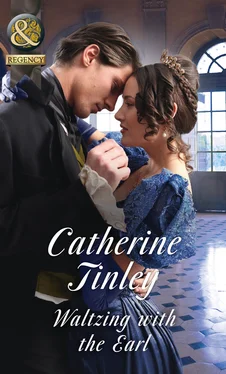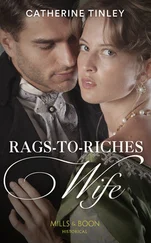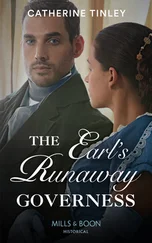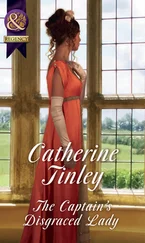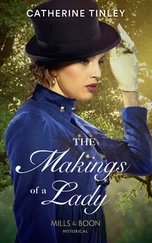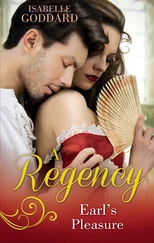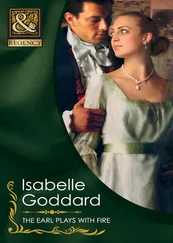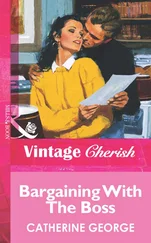Privately, Charlotte had wondered why Henrietta was still unwed, despite being so beautiful. Had she spurned offers of marriage? Surely she had had offers?
‘Mama wants only what is best for us,’ Faith had said, ‘which is why she wants us to beware of heedless pleasure. But I confess I am enjoying the silly vanities of ball-gowns and assemblies.’
‘And so you should,’ Charlotte had replied. ‘For it is wonderful to dress up and go to parties. I declare there is a certain excitement about knowing one is going out, in planning what to wear and getting ready. I think many men feel the same, for they spend a lot of time on their hair, and their neckcloths, and their boots. At least, Papa does.’
Charlotte had been excluded from all the evening outings so far. As Mrs Buxted—a stickler for propriety—had explained, dear Charlotte had not yet been presented at Court. She was therefore to be excluded from large balls and routs, though she might attend small, informal events. Charlotte had heard this with great disappointment. She had been looking forward to many things in London—including ton parties—and had certainly not expected her life to be quite so restricted.
On her first evening in Buxted House, it had been made clear that Charlotte was to adapt to the needs of the family.
‘Miss Charlotte,’ Mrs Buxted had said. ‘I am a straightforward person, and I pride myself on my honesty. We are well thought of in London. You are a Buxted by blood, although somewhat diluted by your father’s family, the Wyncrofts, who were of lesser birth. I cannot imagine what your childhood was like, being raised by a widower in the train of the Army!’
Charlotte had opened her mouth to defend her darling papa, but Mrs Buxted had been insistent.
‘No, I do not wish to hear what you have to say. You are in my charge now, and you will submit to me. I expect the highest standards of behaviour from you. I have spent many years preparing my girls for London society, and no one—least of all a nobody from Paris, or Vienna, or wherever you have been—will risk their future. Do you understand me?’
‘Yes, Aunt.’ Charlotte, chastened, had had no choice but to submit.
Her heart had sunk. Her time in London was to be a more rule-governed existence than the life she had lived abroad. This visit to London—that she had looked forward to with such excitement—would be more of a trial than an adventure, it seemed.
Her hopes of building friendships with her cousins also looked likely to be dashed—Faith was sweet, but slow-witted, and Henrietta seemed proud and vain. Their mother was probably well-meaning, but ruled the household with a will of iron.
Charlotte, unused to being disciplined quite so forcefully or bluntly, reminded herself that as a young person, and a guest in her aunt’s house, she must be ruled by her aunt, no matter how much she hated it. She’d had no idea this would be her life here when she had persuaded her father to let her come. Now all she wanted was for Papa to rescue her from Buxted House.
Her eyes misted as she thought of Papa. There had been many times when they had been apart, but never for three whole months, and never with the sea in between them. He felt much further away than he had ever been. She cried sometimes, when feeling low, but always tried to cheer herself up again.
I’m trying to enjoy this, Papa. And I am trying to behave. But I miss you.
So far, she had done quite well. She had submitted to having a maid accompany her each time she left the house—apart from her morning ride, when she was accompanied by Joseph. General manners and conversation seemed little different, so she had avoided her aunt’s criticism there. The toughest challenge so far had been a surprising one—she was expected to avoid seeming knowledgeable, and not to hold an opinion on anything of note.
‘For a lady,’ Aunt Buxted had advised, ‘must not set herself to be higher in knowledge or understanding than a gentleman. Our weak feminine brains cannot cope with the complexities of knowledge, and to pretend to be well-informed is an unfortunate and unnecessary affectation. There is nothing worse than to be thought a bluestocking!’
This Charlotte found difficult. She was accustomed to the company of political and military men and women and had a great interest in politics. She also enjoyed reading.
Still, to please my aunt, she thought, I can try to be dumb and stupid—at least while she is present. Papa would laugh if he saw me.
Entering the house, she mounted the stairs, intending to go straight to her room to change. On the way, she heard Mrs Buxted’s voice coming from the drawing room.
‘Oh, where is the wretched girl?’
Charlotte hurried inside, her heart suddenly pounding. Mrs Buxted and her daughters were seated in full splendour—the mother on a throne-like winged chair, the girls on matching French chaises. The room had been redecorated recently in the French style, with delicate-looking gilded furniture and in colours of yellow, straw and gold. Faith had an embroidery tambour in her hand, while Henrietta was reading a book of sermons. They looked extremely proper.
Three pairs of eyes turned to her.
‘Ah, there you are—and still in your riding habit. Go and change into something more appropriate. Quickly, girl! They will be here soon!’
‘Of course, Aunt. I am sorry for being late.’
As Priddy helped her don a pretty half-dress of pale blue muslin, with a fashionable hem-frill and satin ribbon, Charlotte wondered aloud why her aunt was so anxious today. ‘For we never had this much fuss for any of the other visitors I’ve met this week.’
‘I’m sure I couldn’t say.’ Priddy sniffed. ‘But some of the servants seem mightily interested in the young gentlemen visiting today.’
‘Two brothers, Faith said—Adam and Harry Fanton. I know little about them.’
Priddy began tidying Charlotte’s hair. ‘One should never listen to gossip, but they say Mrs Buxted has her sights set on these gentlemen for her daughters. The elder—called Adam—is for Miss Henrietta—him being the Earl of Shalford, with an estate bordering the Buxteds’. They say he is on the lookout for a rich wife.’
‘Oh! I am sure my aunt will be glad to see Miss Henrietta well settled.’
‘Hrmphh! Well, your hair will just have to do.’ Priddy stood back to admire her handiwork. ‘Why did you go riding just before meeting visitors? Your face is quite red, girl.’
‘Oh, do stop fussing, Priddy.’ She flashed her abigail a quick smile before hurrying downstairs.
Too late!
As she approached the room she heard male voices. Pausing in the doorway to take in the scene, she was completely unaware of how fetching she looked, with her cheeks flushed and eyes bright from exercise. The ladies were still sitting stiffly, and had been joined by two handsome men—one in a coat of black superfine that looked moulded to his body, the other in regimentals. They rose immediately, and Mrs Buxted made the introductions.
‘Miss Wyncroft, may I present the Earl of Shalford and his brother Captain Henry Fanton? This is Miss Charlotte Wyncroft. Her mother was Maria Buxted—my husband’s cousin. Miss Wyncroft has been living abroad with her father, Colonel Sir Edward Wyncroft.’
Both gentlemen were tall and broad-shouldered, and it was clear to see they were brothers. Both had thick dark hair and handsome, striking faces. The Earl looked slightly older—maybe approaching thirty. His eyes were a piercing grey, and he observed Charlotte coolly. The Captain, in contrast, was all smiles. He showed a marked resemblance to his brother, though his eyes were blue, not grey, and he was perhaps a little shorter.
They made their bows, the Earl formally and unsmilingly and the Captain with a decided twinkle in his eyes. He spoke first.
Читать дальше
